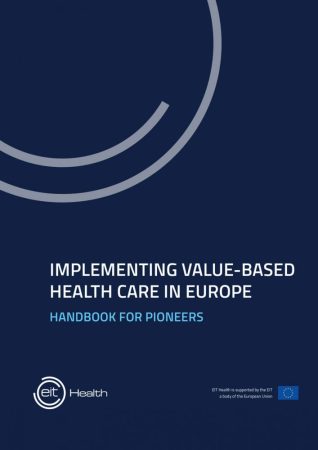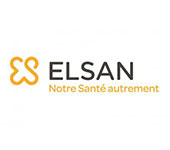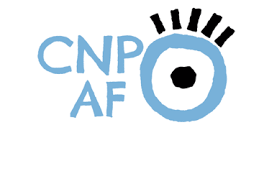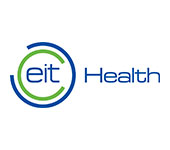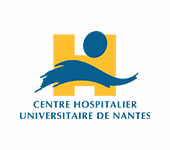According to the WHO, 30% of health expenditures are wasted on inefficient care and avoidable complications.
The Consortium Résultat Patient is dedicated to the emergence of real-world data registries that measure the value of care according to standardised indicators that matter to patients.
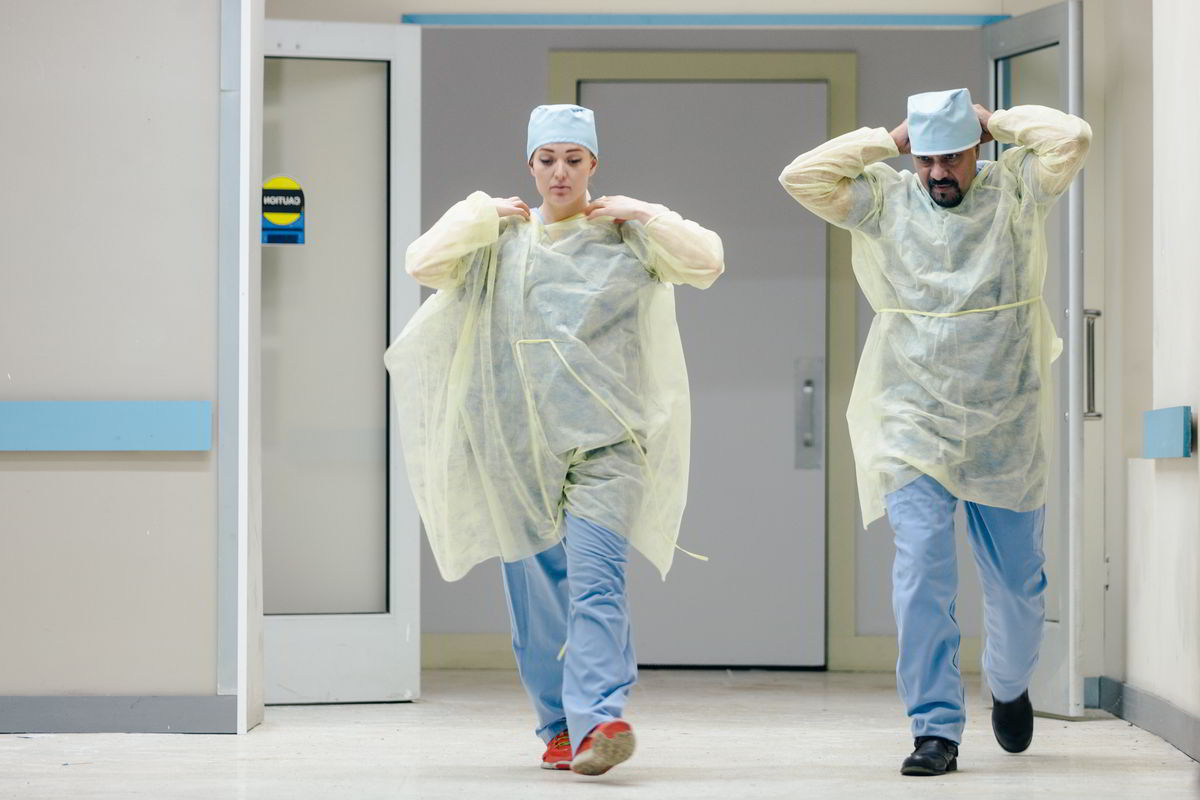

One of the major weaknesses of health systems is that they measure treatment inputs rather than patient outcomes.
To address this, the Consortium Résultat Patient accelerates the emergence of real-world data registries measuring patients’ health gains and Value-Based Health Care (VBHC).
The Consortium includes public and private institutions committed to:
- involving patients in health care evaluation (quality of life, functional recovery)
- allowing clinicians to compare themselves and improve their practices
- making health outcomes visible to all stakeholders
- helping patients navigate the health system and identify high-value care
The Value-Based Health Care (VBHC) approach measures patient outcomes relative to money spent.
Patient outcomes refer to a functional recovery and quality of life composite score.
- This score is measured through psychometric surveys scientifically validated.
- Patients' health gains, of clinical benefits, result from the score difference before, during and after treatment
- Scores are adjusted to patients' profiles, according to comorbidities and complications.
- This comparative analysis of real-world health gains identifies which care pathway generates the highest value for a specific patient profile and for the health system.
The Consortium Résultat Patient was mandated by the European Union to publish a report in 2020 on the implementation of VBHC ecosystems.
Based on an analysis of 250 interviews of VBHC leaders across 22 EU countries, the handbook captures VBHC best practices. It offers a structured roadmap for implementation and presents case studies to help give rise to ecosystems based on high-value care.
interviews of VBHC leaders
EU countries analyzed
visits of pioneering sites

The Consortium is participating in the VBHC cataract experiment led by PromTime, funded by the French Ministry of Health and the National payer, the Assurance Maladie.
The experiment evaluates the appropriateness and transparency of cataract surgeries performed in the Nantes and Limoges regions.
This experiment introduces two pioneering innovations (Decree published in the Journal Officiel de la République Française on July 30, 2020):
- The open benchmark of average health gainsof participating clinicians
- An incentive payment for practitioners who share patients' health gains: The Financial Incentive for Advanced Transparency (FIAT)
Management team
Dr. Jean-Pierre Thierry
President of the Consortium


Marie-Josée Augé-Caumon Honorary President of the Consortium
Scientific Advisory Board for the Cataract Registry
Pr. Béatrice Cochener
President of the National Council of Ophthalmology Professionals
Ophtalmology Department, Brest University Hospital


Dr. Vincent Dédes
President of the Syndicat National des Ophtalmologistes de France (National Union of Ophthalmologists of France)
Cabinet d’Ophtalmologie des Flandres
Dr. François Lignereux
President of the Scientific Council
Institut Ophtalmologique Sourdille-Atlantique


Pr. Dominique Monnet
Vice Président de la SAFIR
Ophthalmology department, APHP Cochin Hospital
Dr. Pascal Rozot
President of the SAFIR (Society of the French Association of Implants and Refractive Surgery)
Ophthalmologist


Pr. Michel Weber
Chef de service
Ophthalmology department, Nantes University Hospital
Dr. Jean-Pierre Thierry
President of the Consortium
Medical advisor, France Assos Santé

Scientific Advisory Board for the Carpal Tunnel Registry
Dr Philippe Bellemère
Ancien président de la Société Française de Chirurgie de la Main (SFCM)
Institut de la main santé Atlantique, Nantes


Dr Camilo Chaves
Chirurgien de la main
Clinique du Pré, Le Mans, Clinique Ambroise Paré, Neuilly sur Seine
Dr Thierry Dubert
Président du Conseil Scientifique
Hôpital Privé Paul d’Egine, Champigny sur Marnes


Mr Cédric Girault
Directeur Administratif & conseiller médico-social
Réseau Prévention Main Ile de France
Dr Yves Jacob
Président de la commission juridique de la SFCM
Clinique Claude Bernard, Metz


Pr Laurent Obert
1er Vice Président de la SFCM
Chef de service, CHU de Besançon
Dr Patrick Théron
Président CDOM 94, Secrétaire Général Adjoint CNOM, Président d’Honneur Réseau Prévention Main Ile de France


Dr. Jean-Pierre Thierry
President of the Consortium
Conseiller médical, France Assos Santé
Scientific Advisory Board for the Maternity Registry
Pr. Patrick Rozenberg
Délégué régional IDF CNGOF
Hôpital Américain de Paris


Pr. Philippe Deruelle
Secrétaire général du CNP GOGM
PU-PH, CHU Montpellier
Pr Alexandra Benachi
Vice-présidente du CNGOF
Chef de service, Hôpital Antoine Béclère APHP


Pr. Cyril Huissoud
Secrétaire général du CNGOF
Chef de service, HCL
Dr. Olivier Multon
Vice-président, Trésorier du CNGOF, Administrateur, Gynerisq
Praticien libéral, Santé Atlantique ELSAN


Pr. Corinne Dupont
Vice-doyenne maïeutique, HCL
Faculté de médecine, Université Claude Bernard Lyon 1
Dr. Jean-Pierre Thierry
President of the Consortium
Conseiller médical, France Assos Santé

Scientific Advisory Board for the Audiology Registry
Pr Vincent Darrouzet
Président du CNP ORL
CHU de Bordeaux


Pr. Hung THAI VAN
Chef de service
Hospices Civils de Lyon
Pr Jérôme Nevoux
Hôpital Bicêtre (APHP)


Pr Christophe Vincent
Chef de service, CHU de Lille
Dr Mary Daval
Chirurgien ORL
Cheffe de service adjointe, Fondation Rothschild


Dr Didier Bouccara
Exercice libéral,
PH Hôpital Européen Georges Pompidou
Pr Frédéric Venail
CHU de Montpellier


Dr. Jean-Pierre Thierry
President of the Consortium
Conseiller médical, France Assos Santé
Management team

Marie-Josée Augé-Caumon
Président of the VBHC Consortium

Dr. Jean-Pierre THIERRY
Vice-President and Secretary General of the VBHC Consortium
Scientific Advisory Board for the Cataract Registry

Pr. Béatrice Cochener
President of the National Council of Ophthalmology Professionals
Ophtalmology Department, Brest University Hospital

Dr. Vincent Dédes
President of the Syndicat National des Ophtalmologistes de France (National Union of Ophthalmologists of France)
Cabinet d’Ophtalmologie des Flandres

Dr. François Lignereux
President of the Scientific Council
Institut Ophtalmologique Sourdille-Atlantique

Pr. Dominique Monnet
Vice Président de la SAFIR
Ophthalmology department, APHP Cochin Hospital

Dr. Pascal Rozot
President of the SAFIR (Society of the French Association of Implants and Refractive Surgery)
Ophthalmologist

Pr. Michel Weber
Chef de service
Ophthalmology department, Nantes University Hospital

Dr. Jean-Pierre Thierry
Vice-President and Secretary General of the VBHC Consortium
Medical advisor, France Assos Santé
Scientific Advisory Board for the Carpal Tunnel Registry

Dr Philippe Bellemère
Ancien président de la Société Française de Chirurgie de la Main (SFCM)
Institut de la main santé Atlantique, Nantes

Dr Camilo Chaves
Chirurgien de la main
Clinique du Pré, Le Mans, Clinique Ambroise Paré, Neuilly sur Seine

Dr Thierry Dubert
Président du Conseil Scientifique
Hôpital Privé Paul d’Egine, Champigny sur Marnes

Mr Cédric Girault
Directeur Administratif & conseiller médico-social
Réseau Prévention Main Ile de France

Dr Yves Jacob
Président de la commission juridique de la SFCM
Clinique Claude Bernard, Metz

Pr Laurent Obert
1er Vice Président de la SFCM
Chef de service, CHU de Besançon

Dr Patrick Théron
Président CDOM 94, Secrétaire Général Adjoint CNOM, Président d’Honneur Réseau Prévention Main Ile de France

Dr. Jean-Pierre Thierry
Vice-Président du Consortium VBHC
Conseiller médical, France Assos Santé
Scientific Advisory Board for the Maternity Registry

Pr. Patrick Rozenberg
Délégué régional IDF CNGOF
Hôpital Américain de Paris

Pr. Philippe Deruelle
Secrétaire général du CNP GOGM
PU-PH, CHU Montpellier

Pr Alexandra Benachi
Vice-présidente du CNGOF
Chef de service, Hôpital Antoine Béclère APHP

Pr. Cyril Huissoud
Secrétaire général du CNGOF
Chef de service, HCL

Dr. Olivier Multon
Vice-président, Trésorier du CNGOF, Administrateur, Gynerisq
Praticien libéral, Santé Atlantique ELSAN

Pr. Corinne Dupont
Vice-doyenne maïeutique, HCL
Faculté de médecine, Université Claude Bernard Lyon 1

Dr. Jean-Pierre Thierry
Vice-Président du Consortium VBHC
Conseiller médical, France Assos Santé
Scientific Advisory Board for the Audiology Registry

Pr Vincent Darrouzet
Président du CNP ORL
CHU de Bordeaux

Pr. Hung THAI VAN
Chef de service Service d’audiologie et d’explorations otoneurologiques
Hospices Civils de Lyon

Pr Jérôme Nevoux
Hôpital Bicêtre (APHP)

Pr Christophe Vincent
CHU de Lille

Dr Mary Daval
Fondation Rothschild

Dr Didier Bouccara
Exercice libéral,
PH Hôpital Européen Georges Pompidou

Pr Frédéric Venail
CHU de Montpellier

Dr. Jean-Pierre Thierry
Vice-Président du Consortium VBHC
Conseiller médical, France Assos Santé
Management team

Marie-Josée Augé-Caumon
Président of the VBHC Consortium

Dr. Jean-Pierre THIERRY
Vice-President and Secretary General of the VBHC Consortium
Scientific Advisory Board for the Cataract Registry

Pr. Béatrice Cochener
President of the National Council of Ophthalmology Professionals Ophtalmology Department, Brest University Hospital

Dr. Vincent Dédes
President of the Syndicat National des Ophtalmologistes de France (National Union of Ophthalmologists of France) Cabinet d’Ophtalmologie des Flandres

Dr. François Lignereux
President of the Scientific Council Institut Ophtalmologique Sourdille-Atlantique

Pr. Dominique Monnet
Vice Président de la SAFIR Ophthalmology department, APHP Cochin Hospital

Dr. Pascal Rozot
President of the SAFIR (Society of the French Association of Implants and Refractive Surgery) Ophthalmologist

Pr. Michel Weber
Chef de service Ophthalmology department, Nantes University Hospital

Dr. Jean-Pierre Thierry
Vice-President and Secretary General of the VBHC Consortium Medical advisor, France Assos Santé
Scientific Advisory Board for the Carpal Tunnel Registry

Dr Philippe Bellemère
Ancien président de la Société Française de Chirurgie de la Main (SFCM) Institut de la main santé Atlantique, Nantes

Dr Camilo Chaves
Chirurgien de la main Clinique du Pré, Le Mans, Clinique Ambroise Paré, Neuilly sur Seine

Dr Thierry Dubert
Président du Conseil Scientifique Hôpital Privé Paul d’Egine, Champigny sur Marnes

Mr Cédric Girault
Directeur Administratif & conseiller médico-social Réseau Prévention Main Ile de France

Dr Yves Jacob
Président de la commission juridique de la SFCM Clinique Claude Bernard, Metz

Pr Laurent Obert
1er Vice Président de la SFCM Chef de service, CHU de Besançon

Dr Patrick Théron
Président CDOM 94, Secrétaire Général Adjoint CNOM, Président d’Honneur Réseau Prévention Main Ile de France

Dr. Jean-Pierre Thierry
Vice-Président du Consortium VBHC Conseiller médical, France Assos Santé
Scientific Advisory Board for the Maternity Registry

Pr. Patrick Rozenberg
Délégué régional IDF CNGOF Hôpital Américain de Paris

Pr. Philippe Deruelle
Secrétaire général du CNP GOGM PU-PH, CHU Montpellier

Pr Alexandra Benachi
Vice-présidente du CNGOF Chef de service, Hôpital Antoine Béclère APHP

Pr. Cyril Huissoud
Secrétaire général du CNGOF Chef de service, HCL

Dr. Olivier Multon
Vice-président, Trésorier du CNGOF, Administrateur, Gynerisq Praticien libéral, Santé Atlantique ELSAN

Pr. Corinne Dupont
Vice-doyenne maïeutique, HCL Faculté de médecine, Université Claude Bernard Lyon 1

Dr. Jean-Pierre Thierry
Vice-Président du Consortium VBHC Conseiller médical, France Assos Santé
Scientific Advisory Board for the Audiology Registry

Pr Vincent Darrouzet
Président du CNP ORL CHU de Bordeaux

Pr. Hung THAI VAN
Chef de service Service d’audiologie et d’explorations otoneurologiques Hospices Civils de Lyon

Pr Jérôme Nevoux
Hôpital Bicêtre (APHP)

Pr Christophe Vincent
CHU de Lille

Dr Mary Daval
Fondation Rothschild

Dr Didier Bouccara
Exercice libéral, PH Hôpital Européen Georges Pompidou

Pr Frédéric Venail
CHU de Montpellier

Dr. Jean-Pierre Thierry
Vice-Président du Consortium VBHC Conseiller médical, France Assos Santé


